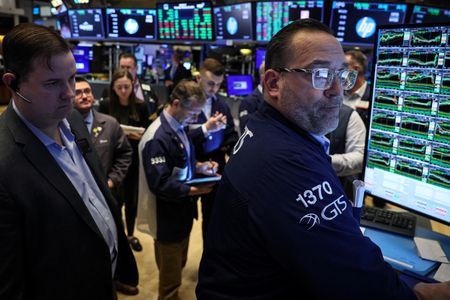By Michael S. Derby
NEW YORK (Reuters) – Federal Reserve Chair Jerome Powell said central bank independence is a proven and well-supported way to achieve the best possible outcomes for the U.S. economy, in comments before a congressional panel on Tuesday.
“The record is pretty clear” that a central bank that operates outside of political factors and direction is “a good institutional arrangement that serves the public well,” Powell said, adding that when it comes to central bank independence, “as long as it’s seen to serve the public well, it’s a good choice.”
Powell was speaking as part of testimony on the outlook for monetary policy and the economy before the Senate’s Committee on Banking, Housing, and Urban Affairs.
Powell noted in his remarks that central bank independence is a common arrangement among the world’s top central banks, which are all afforded latitude to achieve their respective mandates without being directed to do so by political authorities. A key aspect of independence is that it gives central banks space to make difficult choices when it comes to managing inflation.
Fed independence issues have loomed back into focus amid a presidential election season that could return Donald Trump to the White House. When Trump was president he repeatedly attacked the Fed for its monetary policy choices, breaking from decades of presidents refraining from actively lobbying the Fed over how to set interest rate policy.
Economists and other experts generally agree that political pressure on central banks leads to worse outcomes for the economy, especially on the inflation front.
Powell told senators “the results are clear” that when a central bank can tackle its goals free of political direction “you have better-anchored inflation expectations and you have better performance on inflation and better performance in the economy generally.”
Powell said that among elected officials, the benefit of Fed independence “is pretty broadly understood and particularly on Capital Hill.”
(Reporting by Michael S. Derby; Editing by Chizu Nomiyama and Andrea Ricci)




